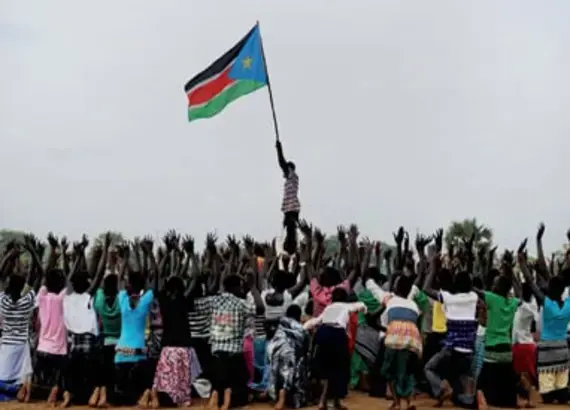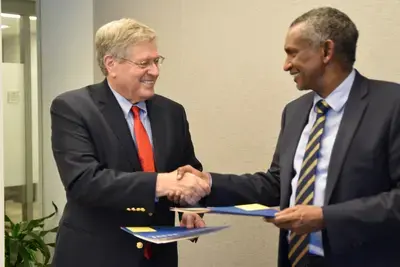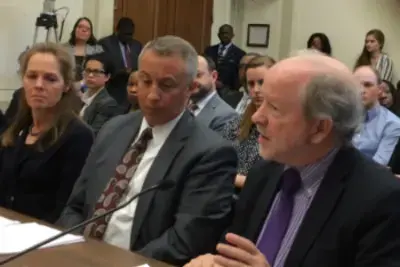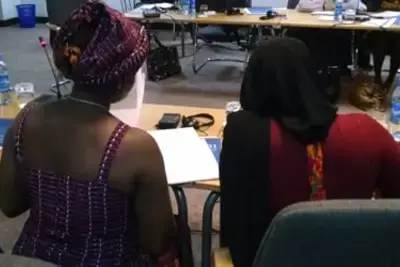
Success Story
South Sudanese Want Fair and Inclusive Government, NDI Study Finds
Tribal violence in South Sudan’s Jonglei state has displaced an estimated 120,000 people and left up to 3,000 dead. Meanwhile, the South Sudanese government has halted oil production due to unresolved wealth-sharing issues with Sudan and announced austerity measures to compensate for revenue losses and inflation. The increased violence and volatile economic situation represent a contrast with the bright future envisioned last year when South Sudan became the world’s newest country.
It has also produced a growing pessimism among South Sudan citizens about the direction of their new country, according to the findings of NDI’s latest public opinion study in South Sudan, which were released in a March 22 report. Participants cite increasing tribal violence and the tenuous economic situation, which has produced a significant rise in the cost of living, as well as lack of development as the key sources of their concerns that the country is on the wrong track.
They also identified as crucial to their future questions of how to govern and unite a country with such immense ethnic diversity and a troubled history of ethnic conflict.
The focus group report – NDI’s 13th study in Sudan and South Sudan since 2004 – cites findings from 44 focus group discussions held in all 10 states in November-December 2011 in which 545 participants share their thoughts on creating an inclusive and fair government. Participants also suggest ways in which the government can increase the public’s confidence in its ability to deliver a better life for all, regardless of tribal affiliation.
Participants said the most effective strategies for making everyone feel included were to deliver basic services equitably and ensure tribal balance in government. They also want the South Sudanese government to support measures to include women, youth and opposition political parties in government.
President Salva Kiir’s decision to fulfill, and even exceed, the mandated quota of 25 percent for women’s representation in his national cabinet was widely endorsed by participants.
Exceeding the quota “is a very good idea to encourage women to improve,” said two young men from Central Equatoria. “Women have been neglected in the country for too long; that’s a beautiful idea.”
In South Sudan, where 70 percent of the population is under 30, the focus group participants also highlighted youth political participation as important.
“Youth should be involved in the government because they are the key foundation of government,” said an older [any other way to characterize? Older means different things to different people] man from Western Bahr el Ghazal.
Participants also said that convincing citizens that government is committed to development progress requires concentration on key areas, such as education, health care and roads; public consultation on development; and communication about plans and accomplishments.
But announcing development plans without specifying locations and failing to demonstrate progress creates more negative than positive views of government, further widening the gap between what citizens expect and what the government can provide, according to the participants.
Other key findings from the report:
- Most participants said it was important for a political party that wins an election to include other political parties in the government, though they also said there should be criteria to define which parties are eligible to participate;
- Participants said South Sudanese abhor tribalism but engage in it because of unfair government employment practices and inequitable service distribution; and
- Most believe it is South Sudan’s duty to help resolve the Southern Kordofan and Blue Nile conflicts, but there are mixed views on whether the country’s assistance should focus on dialogue, humanitarian relief and/or military aid.
Participant responses led NDI to suggest steps the government of South Sudan could take to promote more inclusive government and engage average citizens, particularly women and youth. NDI’s specific recommendations included:
- Promoting inclusiveness by addressing the public’s concern about tribal balance in government, demonstrating equitable treatment in development, and consulting citizens about government plans and decisions;
- Managing development expectations by communicating government accomplishments and specific plans for future development and increasing public confidence through regular consultation with citizens on whether development is being equitably distributed;
- Increasing citizen participation in the development of a permanent constitution;
- Demonstrating concern for citizens and a vision for the future by responding to citizen expectations, such as providing emergency hunger relief, increasing the flow of goods into the country to reduce prices and expressing a vision for how to increase South Sudan’s self-sufficiency.
The public opinion study, entitled Governing South Sudan: Opinions of South Sudanese on a Government That Can Meet Citizen Expectations, was researched and written by Traci Cook, senior advisor and regional director for focus group research at NDI, and Dr. Leben Nelson Moro, acting director of the Directorate of External Relations at the University of Juba.
Read more:
- Sudanese Citizen Coalition Calls for Wide-Ranging Electoral Reforms»
- Southern Sudanese Women’s Coalition Calls for More Inclusive Constitution»
- Sudanese Civic Group Gives Mostly Positive Marks to South Kordofan Polling Process»
- SuNDE and SuGDE Statement on the Tabulation Process and Announcement of the 2011 Southern Sudan Referendum Preliminary Results»
- Building a Nation: South Sudanese Share Their Thoughts on the Creation of a Successful State»
Published March 26, 2012



